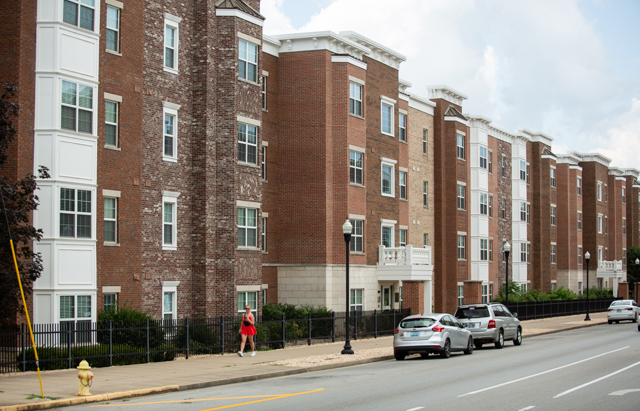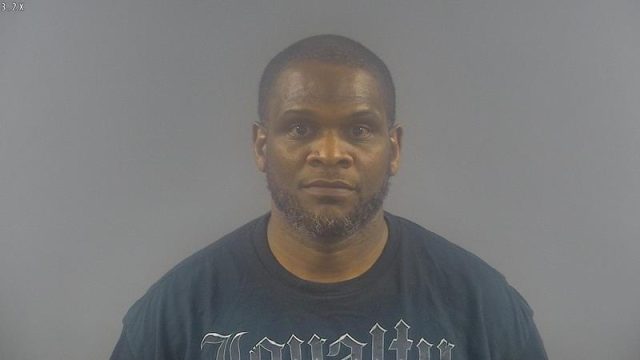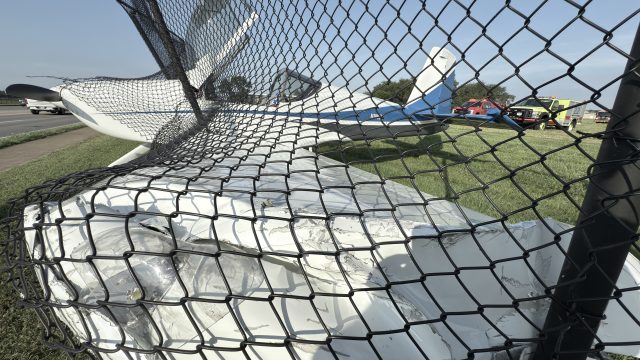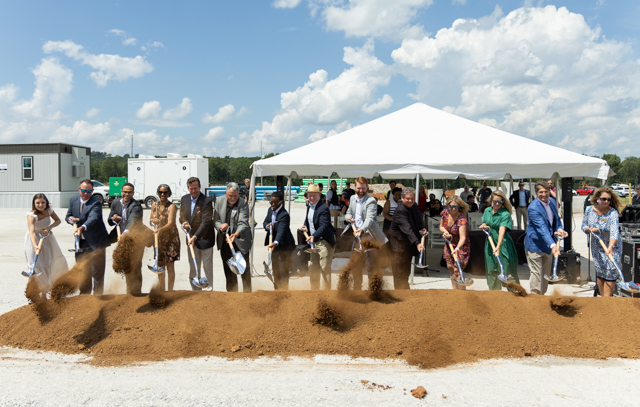Lawson found guilty in Rogers murder trial
Published 2:34 pm Friday, May 30, 2025


Steven Lawson was found guilty Friday afternoon of conspiracy to commit murder and tampering with physical evidence, the first conviction obtained in the disappearance and presumed death of Crystal Rogers.
Lawson, 54, was on trial on charges of conspiracy to commit murder and tampering with physical evidence.
Prosecutors allege that Lawson acted with Brooks Houck in a plot that culminated in the death of Rogers, who was 35 when she disappeared on July 3, 2015.
Trending
She has not been located since then and is presumed dead.
Her car was found on the Bluegrass Parkway on July 5, 2015, with her cellphone and purse inside and the keys in the ignition. The car had a flat tire when it was found.
Houck, her former boyfriend, is set to face a trial next month on charges related to her disappearance. Lawson’s son, Joseph Lawson, is also criminally charged.
The case was moved to Warren County for trial owing to pretrial publicity in Nelson County, where the alleged offenses were charged.
Lawson takes the stand
Answering questions from defense attorney Zach Buckler, Lawson said that he and his son, Joseph, were drinking at a bar on the night of July 3, 2015.
Trending
At a certain point, Steve Lawson said he lent his car keys to his son and another person so they could obtain drugs and Joseph Lawson returned some time later and told his father that they had to move Rogers’ car.
From there, Steve Lawson said he dropped his son off where the car was located and then he went to a farm on Thompson Hill Road to continue drinking.
Lawson testified that his son brought Rogers’ car to the farm and that he urged Joseph Lawson to turn around and drive off, saying that he was concerned that the car would end up being stolen if it were driven past a certain point on the farm property.
Late on the night of July 3, 2015, Steve Lawson got a call from his son asking him to come pick him up because the car had broken down on the parkway.
Steve Lawson said he drove until he found the car, picked up his son and moved the driver’s seat in Rogers’ car forward before returning to Thompson Hill.
Lawson’s defense team has conceded that those actions are enough to constitute tampering with physical evidence.
“I pushed the seat up, I’m man enough to admit that,” Lawson said to the jury on Friday. “I don’t want y’all to say he’s trying to get out of something because I’m not.”
Buckler asked Lawson about a statement Houck, who employed Lawson in constructing rental properties, made about wanting Rogers “gone.”
Lawson had told a grand jury in 2023 that he thought Houck meant that he wanted Rogers dead.
On Friday, Lawson spoke further about Houck’s statement.
“I laughed it off and said you got the wrong guy, you’ve got the meanest people in the world working for you,” Lawson said Friday, adding that he related to another person, Charlie Girdley, what Houck said and that Girdley laughed it off as well.
Lawson acknowledged calling up Houck shortly after midnight on July 4, 2015, to inform him that Rogers’ car had been moved, but testified that he did not know whether Rogers was dead or if Houck or Houck’s brother or mother, who have been named as unindicted co-conspirators, had any part in Rogers’ disappearance.
Questioned by Buckler, Lawson also denied that he had given Houck the means and opportunity to kill Rogers.
“I was just moving the vehicle, plain and simple,” Lawson said.
The cross-examination from special prosecutor Jim Lesousky focused largely on prior statements Lawson made to police and a grand jury.
Lesousky brought up that Lawson told a grand jury that Houck promised him drywall work, but Lawson said that was not a favor granted for taking part in a conspiracy, but rather a request for work made previously.
Lesousky asked Lawson why he thought he was being asked to move Rogers’ car after hearing Houcks say that he wanted her dead.
“I don’t know, I did not ask,” Lawson said. “I don’t know why he wanted the car moved, I still don’t know.”
Lesousky also zeroed in on a phone call Houck made to Lawson from the Nelson County Sheriff’s Office on July 8, 2015, in which Houck asked about their phone call four nights earlier.
Lawson responded to Houck at the time that the call was about finding a rental house for his stepdaughter to rent.
“You got together and made a plan to lie about that phone call, didn’t you?” Lesousky asked Lawson, who maintained that he did not know why the car was moved and told Lesousky “you’re trying to say it happened a different way.”
Lesousky also brought up a 2020 interview FBI task force agent Mike Shafer conducted with Lawson in which Lawson said he stayed at home on the night of July 3, 2015.
Lawson testified that he was “not man enough” at the time to admit that he had moved Rogers’ car.
Lesousky moved on to ask Lawson about the roughly 4 1/2 hours he spent on Thompson Hill Road after picking up his son from the Bluegrass Parkway.
Authorities have searched the farm on Thompson Hill Road, but have not recovered any remains.
Lesousky asked if Lawson expected the jury to believe that it was simply a coincidence that Lawson spent several hours on the property after Rogers disappeared and after picking up his son from Rogers’ abandoned car.
Lawson said he spent several nights on the property drinking back then.
When asked by Lesousky if he lied to the FBI to cover up his responsibility for Rogers’ disappearance and presumed death, Lawson said “It’s not true, but you’ve got the right to your opinion.”
Attorneys make closing arguments
The jury of nine women and three men began deliberations early Friday afternoon after closing arguments from Lesousky and defense attorney Darren Wolff.
Reiterating what he said in his opening statement, Wolff said that while the evidence was clear that Lawson tampered with evidence, the prosecution had not been able to prove that a conspiracy existed between Houck and Wolff to murder Rogers, with Wolff arguing that there was no proof that a murder had occurred.
“Was the evidence clear beyond a reasonable doubt that Crystal Rogers was murdered? That’s not what I heard,” Wolff said. “Where did we hear in the evidence that Steve Lawson aided Brooks Houck in the planning of a murder? You didn’t hear that, because that’s not what happened.”
Wolff reminded jurors that Rogers’ car was returned to her surviving family and later examined by an investigator hired for an Oxygen Network docuseries about the case, which Wolff said suggested a lack of care taken by law enforcement to preserve evidence.
“It is an absolute absurdity to think that car should not have been maintained as evidence to this very day,” Wolff said.
Wolff argued that police should have ensured that two hairs collected from inside Rogers’ vehicle underwent DNA analysis.
Former Nelson County Sheriff’s Office Detective Jon Snow testified that having them analyzed risked destroying evidence, but Wolff argued that the hairs’ value as evidence cannot be determined without testing.
Wolff also reminded jurors that the investigation remains open.
“What closure can we give (Rogers’) family when we still don’t know what happened to Crystal Rogers?” Wolff said. “Do not allow speculation and lack of answers to lead you to a conclusion that takes care of peoples’ concerns for closure.”
Lesousky countered during his closing argument that the evidence shows Lawson’s guilt.
“This man, by his own words, put himself in the middle of an evil conspiracy,” Lesousky said. “He knew the plan was to kill that young lady … every step he took after that was to facilitate and promote the plan Brooks Houck had to kill this young woman.”
The late night phone calls Lawson received from his son and subsequently made to Houck only deepen suspicion of his involvement in a conspiracy, Lesousky argued.
Lawson’s inconsistent statements to police and to the grand jury before his indictment were lies to cover up the extent of his involvement, Lesousky said.
“Why would he do that if he wasn’t an important asset to this conspiracy to kill?” Lesousky said.








